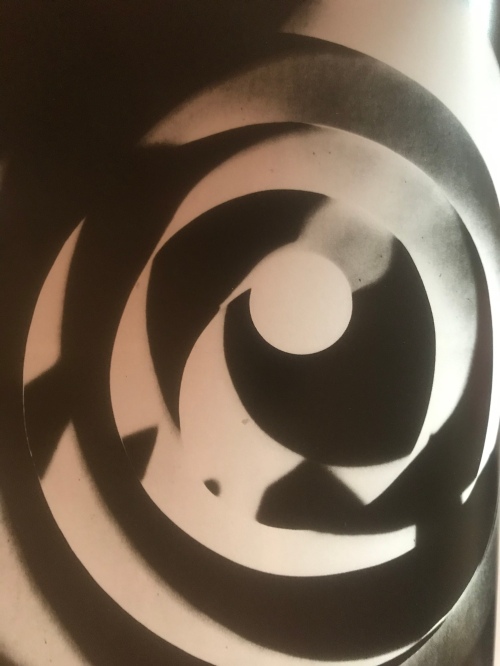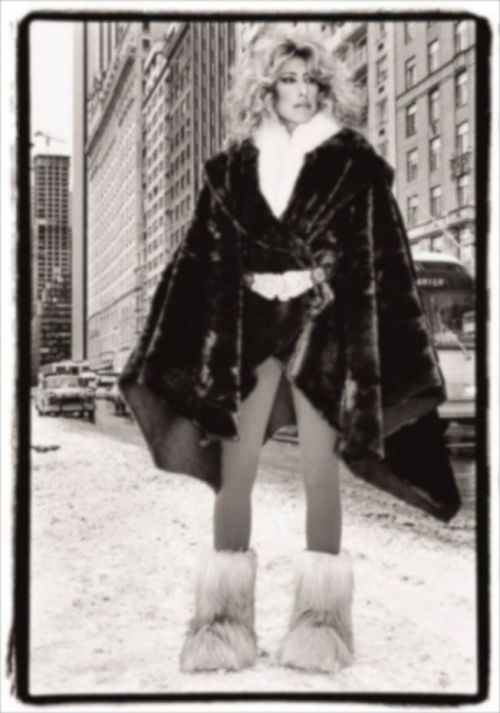

I first met Mr K around twenty years ago. As one of the most experienced and knowledgeable English teachers in the school, he could explain the finer grammar points to me better than I understood them myself, and he was valued by the company for his ability to instill this impractical but necessary English in students for the higher level entrance exams. Suspicious of me at first, his narrow, deep set eyes watching me closely in his snide, if humorously and appealingly hippopotamus-like face as I walked into the room, with his faltering, heavily-accented English that he was obviously quite self-conscious of, he hesitated to address me directly, but gradually let down his guard and began to take to me – and me to him. I found him amusing. We had a similarly absurdist sense of humour, a general skepticism, a playful mockery and politically left of centre tendencies (he had supposedly been a ‘revolutionary communist’ at his university, when longhaired and speaking Chinese and womanizing). He had a wild side I could correspond with, even if I hardly agreed with his general philosophy of life. With his louche and sexist ways – constantly disparaging his wife and ex-wife in mean fashion – he was almost disgustingly libidinous, always reducing women to their basic physical elements and appraising their value as such: after work he would usually drink sake in Fujisawa late at night at the ‘hostess’ or the many Thai ‘nyu-haafu’ (transsexual ) bars until he passed out, sometimes coming in to work the next day dishevelled and reeking of alcohol as though he had slept under a hedge. I would give him mints and tell him to go and smarten himself up. In many ways, he was a disgrace. His views often offended me, but he also amused me : at least here was somebody with character and obvious defects he didn’t try to hide. He wasn’t always trying to appear ‘perfect’. I found it refreshing. At least at first.
Despite his dissolute lifestyle, Mr K in other ways was as rigidly conservative as they come, very much of the old school way of thinking – still very prevalent – that the university you go to completely defines you as a human being, meaning that with my Cambridge credentials I was automatically elevated to ‘acceptable person’ status. Graduating from the ivory towers was all he needed to know. I was bona fide, based on my certificate: my academic ‘prestige’. Little else really counted for him.This man fully believed, deep down in his soul, that ‘intelligence’ could be measured solely by how a person performs in the hopelessly archaic Japanese high school and university entrance exams; that your fundamental worth comes from the establishment that you eventually, after years of studying hard at schools and cramming at night schools, manage to enter. It was all hierarchy, ranking, name. It irked me. And was nonsense. A student, say, who to me was obviously very talented, even possibly a genius at several subjects would be immediately discounted as competely ‘stupid’ if they couldn’t do mathematics or science (so that obviously includes me as well then ), or if they were more logically minded – a future Nobel scientist – but couldn’t grasp the nuances and ambiguity of written Japanese (‘baka’ : : he is stupid). No. Only a blinking automaton who acquiesced in a servile manner: humble, committed to rote learning and using their ‘intelligence’ consistently across the board in order to answer, passively, all the multiple choice questions that will never really help them in real life; who bowed respectfully when he walked in, managed to stifle their yawns in his notoriously static and mind-numbing evening classes (I saw this on many occasion with my own eyes when I passed by his classroom) – only they would be accepted as being, in the severe restrictedness of his view, remotely ‘intelligent’. And intelligence, and academic prowess, were all that mattered.
Mr K had gone to the elite Tokyo Institute Of Foreign Languages, where he had specialized in English and Mandarin in the 1970s. Coming from Kagoshima Prefecture on the lusher, slower island of Kyūshū, this was his one claim to greatness; the one fact his porcelain pride could cling to – seemingly, even the very pillar of his identity – he was always talking about it, though he had left that linguistic institution more than thirty years before. Despite his occasionally amusing anecdotes and observations in the teachers’ room, to me it made him an objectionable academic snob. Ranking people in direction proportion to their university degrees. The lower, the more inferior. But worse, I later came to realize that he was also an inveterate bully. And it was this, as I gradually witnessed him viciously verbally abusing at least three of my Japanese colleagues first hand – two of whom developed very serious psychosomatic illnesses as a direct result of his nastiness, with all the standard consequent psychological repercussions – that made me quickly realize that I was teaching in quite a toxic environment. And later, it would happen also to me. At his hands. I had always thought of myself as much stronger – immune, if you like – but I came to see and experience personally just how badly bullying does affect people. And it was this side of Mr K that then dominated in my view of him, despite his better attributes – I know that he was proud of, and loved his children very much – and why I was glad, in the end, to see him gone. Even not, ideally, in those particular, sorry circumstances.
While Mr K continued to quietly, if openly, bully a sweet, if somewhat docile – and in truth, occasionally incompetent – English teacher I sat next to and got on perfectly well with, on the whole, this harmless married man in his thirties was able to take – just – his ‘superior’s’ incessant, critical verbal tirades about his lack of ability or lack of intelligence – until the time he finally started developing quite crippling stomach pains – probably ulcers, or polyps- from all the stress, and which in the end kept him from work for quite a while (highly unusual in Japan – people do not take days off from work here unless they are virtually dying). I really felt for him, and tried to be nice. Chatting to him and making small talk in order to encourage him. And when alone with Mr K, I told him directly that he should stop being so obnoxious, criticizing him openly when he wouldn’t let up, and the poor man sitting next to me seemed nervous and pale.
I wasn’t to know, however, that he was just warming up. Saving his most hateful and hot-blooded vitriol for a lovely young teacher who became a good friend of mine and his eventual suffering victim and who I shall for the rest of this chapter call Yuina. As far as I was concerned, this new, petite, smiling and girlish colleague that I found sitting next to me one spring and whose marriage I would one day go to: her parents came up to me in order to thank me personally for looking after her during this terrible time in her life – was a quick-silver intelligent, self-deprecating person, immediately loved by all the students, very genuine, if vulnerable, and someone I instantly clicked with. At the beginning, she was always smiling. Someone who enjoyed a lot of things and laughed a lot, while simultaneously being aware. And although she claimed not to be able to speak English despite having lived in America for a while as a child, she understood everything that I was saying, with all the nuances (which Mr K never had a chance in hell of doing, and I think it was that which made him jealous). A Disney lover – something I can’t relate to personally, she was also a bass guitarist in an all girl pop punk rock group who she loved performing with;she appreciated the darker side of life too alongside her enjoyment of happy endings: horror movies, thrillers..we had what I call the ‘ether’: banter about nonsense that made me laugh unselfconsciously and quickly – not all the forced humour of the teachers’ room where everyone is basically permanently on edge and performing -just random silliness: she would say things in Japanese, and I would reply in English and vice versa, which was an odd state of affairs but we always knew exactly what the other was talking about. I was so happy to finally have someone beside me I could actually feel at home with.
Was this why the mean-spirited man opposite us, vituperously stewing in his own juices and pride every day, decided to then pick on her so ferociously? Because with Yuina he became a monster. Yes, when teaching the students and joshing in the hallways, messing with kids’ hair and teasing them harmlessly, he seemed just like a jovial big bear. But with my friend, riled with incomprehensible rage he seemed to desire nothing less than the destruction of her spirit. To ‘tame’ her. ‘Bring her round’. Nail her. He truly seemed to hate her, and used his position of power and advancement to say to her whatever he wanted, unpunished. He was never reprimanded. At least not in front of me. And I simply couldn’t understand it. She hadn’t done anything. Except, perhaps, just be her sunny self. And, of course, to not have graduated from the blessed Institute Of Foreign Languages (but she had been to Keio – equally respected, if you really care about such things……. I just found the whole thing utterly ridiculous) One factor I think that led to her being subjugated to his vicious whims on a daily basis was that she was what is known as a kikokushijo, or ‘returnee’, having lived abroad for a while because of her father’s work and therefore, in some people’s eyes, not ‘pure Japanese’. This is a common problem for people coming home: although it is possible that envy – in being able to speak real English, for a start, which the current Japanese education system simply does not allow people to do – plays a part, it is also the issue of differing temperament and behaviour. Although ethnically identical to their friends at school, a few years out of the straitjacket can do wonders for a person’s perspective on the world – not to mention having the experience of that strange and exotic, unimaginable concept called free time. Students here simply can’t believe that in Europe and in fact most of the world, a six to eight week summer holiday, or even longer in places like Italy, where you are pretty much free to do whatever you want, is essentially the norm. And the students I teach who have experienced this uniformly love it.
They get used to it. The body language changes. It loosens. There is more eye contact, a slovenly effect, I suppose, sometimes a sense of being a bit too comfortable in one’s own skin, that comes across to some as iikagen or bad-mannered; immodest, lazy at any rate – not a person who has done the full conveyor belt J-citizen factory from kindergarten through to graduating from university. To many, the returning students are simply not ‘real’ Japanese anymore, and they therefore often face a peculiar kind of discrimination. Perhaps this is what I liked about her, I don’t know. Not being able to transform myself into the kind of foreigner who willingly absorbs Japaneseness to the point of no return, I myself was also like a hybrid in many ways, and so was she: to me Yuina was just a unrestrained: she dared to be ebullient. But Mr K detested this. To him she was some kind of abomination.
From the moment she entered the teachers’ room, even though, or perhaps because she had been a former student at the school, taught by Mr K – how dare she now be his equal in the staff room! – he was finding fault with her, almost leering in his constant pinpointing of what was wrong with her – that she wasn’t ‘polite’ enough, that she wasn’t ‘feminine’ enough, that she was insolent, indolent, spent too much time talking to me, that she didn’t know anything about English or English grammar, that she was a useless teacher, and he would frequently reduce her to tears. In the staff room. I would do all that I could to intervene, when I was working with her at the same time, though I knew that whenever I wasn’t it was even worse, that he really laid into her, got really deep and wouldn’t let up. And as a new teacher, an underling, she had no right to answer back. Particuarly not to an older, experienced, ‘veteran’ teacher. I noticed that she was getting more and more run-down. Red-eyed. Coming down all the time with colds and coughs with a permanent, slightly too high temperature. Wearing surgical masks to cover her face and protect herself from some of the criticism. She didn’t look well at all, and started to speak much less to me, keep herself to herself. Sit quietly. I think the incremental bullying accrued in her bloodstream; accumulated, little by little knocking down her immune system and self-esteem; along with the stomach pain that the two other male colleagues I had sat next to suffered – one was visibly becoming more and more disheartened and depressed as the weeks went by; he apparently had the ‘sin of arrogance’ (admittedly, he wasn’t subservient, and had an ego, his own ideas about things, and was quite ‘K.Y’ – literally kuki yomenai – someone who can’t ‘read the air’ ie clueless) but he wasn’t a bad sort by any means either and certainly didn’t merit such horrible treatment – for just existing. Yuina, though, the object of K’s deep misogynist fury – was obviously in a class of her own.
One day, when I was sitting next to her one afternoon, she suddenly couldn’t see. ‘I can’t see anything’ she said to me quietly. She was staring forward, eyes open. ‘I can’t see’. Clearly very distressed, as was I, but trying not to draw attention to herself, she was closing her eyes, then opening them – but she wasn’t able to focus. She sat still in her seat, trying to compose herself, willing this away. I didn’t know what to do; couldn’t quite believe what was happening. She couldn’t see? It seemed that the stress of all the bullying had made her temporarily actually go blind. Not just a migraine – which the other bullied teachers were also sometimes getting – but so many flashes of white in her irises that she simply wasn’t able to see. And she was in a panic – and I for her (blindness is my greatest fear) : and I could hardly believe what was happening; and he just sat there, blank-faced, almost enjoying it as another human being was going through such tremendous suffering, inflicted by him, as she was led out eventually and, once the initial crisis had subsided and her eyesight was working a little again, allowed to go home. I had no words.
Except I did, a little later, when we had one of the few social events that I was somehow required to go to – a goodbye party in an izakaya organized by our jovial, good-hearted manager Mr Takamine (a well meaning individual, overall, but why didn’t he step in more to intervene in this situation? Such vile and demeaning treatment by one of his teachers? Did he also think that she needed to be ‘taught a lesson or two’ or ‘go through the ropes’? (was this some form of psychological hazing?) I was sat in a corner opposite Mr K and next to Yuina who, despite the food she was picking at and the alcohol she was being coerced to drink – even though she reacted badly to it – and the supposedly upbeat and ‘celebratory’ atmosphere was, once again, unsurprisingly, being bullied (but at a party?) And this time it was like a soliloquy. A rant by him; a monologue against her. Yuina weeping silently, head down, as the puffed up, unthinking ‘linguist’ continuously hounded her with insults and rudeness until finally, my blood boiling I could take it no more: smashing my fists on the table to the gasps and stares of other onlookers in the restaurant, standing up and shouting into his face with multiple middle fingers and fuck yous I erupted into a blind rage that totally shocked everyone there and I instructed him to stop this immediately, shouting at my manager for not doing anything either as she cowered into her corner probably wishing she could disappear but I couldn’t stop ( I should have done this decisively, and earlier). I told him how cruel he was, that I wouldn’t stand for it any longer, that he was hurting her, in a mix of English and Japanese, imperfect, but there was absolutely no doubt whatsoever for anyone there about how I felt. I stormed out in a cyclone of mayhem and with a feeling of despair that verged on suicidal. An inchoate sadness at the inherent injustice of the situation. A person in power taking advantage of someone in a weaker position and just intentionally ripping her apart. Day after day. His behaviour offended me to the depths of my being in its unfairness, its pointlessness, and sheer cruelty.
Which is, of course, the essence of bullying, a problem that lies at the heart of Japan – and of virtually every other culture, no one is immune – but particularly here, and a problem that can no longer be ignored. A recent government report indicates that cases of bullying, both physical intimidation and verbal abuse, have escalated over the last few years, particularly in elementary and junior high schools (with maturity, it seems the problem is less endemic once kids actually start to develop more empathy as their brains develop), but as in any culture where blind conformity is expected, fissures of stress will inevitably break open, and those that are weak, independent or different in any way will always bear the brunt. Deru kugi wa utareru – ‘the nail that sticks out must be hammered down’ is a famous expression in Japan, a proverb that speaks for itself. I have had students who have been bullied at their schools (not our evening classes – I have an absolute zero tolerance policy towards anything even approaching bullying), and who come to juku depressed, sullen, unresponsive. The bullying can range from the familiar victimization of anyone physically different, to those with ‘quirky’ personalities, to even just the stress of being in a ‘group’ of friends at school where you are expected to do what your friends do without question. Girls, especially, seem bound to belong to a trio or quartet of some peers from their class or their club activity, with a designated ‘leader’ who makes all the main decisions for which their tacit acquiescence is required; they do everything together; decide everything together, and while much of the time this can undoubtedly lead to fluttering hearts and passionate pubescent mutual confidences, and in the best cases, true friendships for a lifetime, it can also lead to huge frustration and a stultifying loss of liberation and personal identity. One girl I taught, a student who had been abroad and was basically friends with everyone in her class there, was horrified to find that she was silently expected to join one of these cutesy ‘cliques’ made up entirely of girls of her own age when she really didn’t want to. A naturally fun and effusive girl, it was very alarming to me to see her getting more and more sad and listless each time she came to my class, weighed down with the burden of intricate social minutiae she wasn’t remotely interested in to begin with, all the unspoken social ‘rules’; that she was supposed to intimate her friends’ deeper feelings through intuition, rather than having them stated far more openly, which she said that she was used to (an intrinsic cultural gulf, that exists deep down in the essential supposed differences between Japanese and western cultures made small in the confines of a provincial school classroom). But it was all just a hassle to her. And she knew it couldn’t continue (whenever students tell me ‘I hate my friends’, I always explain the inherent contradiction).
One day she had had enough. That evening she came in cheerful and beaming. I asked, as I always did, about the subtle bullying she had received at the hands of the ‘leader’ and her handmaidens in the playground. ‘I am no longer a member of the group’, she told me. ‘How did that happen?’ I inquired. ’I wrote her a letter today. I told her that I didn’t like any of them, and that I was leaving’ she told me – ‘I have left them’ : an act of great bravery in the context I thought. And that was that.
Others are not quite so lucky. One student of mine was repeatedly viciously bullied, both physically and verbally, on a daily basis, by a group of boys who harangued him relentlessly to the point where he actually barricaded himself in his bedroom for a while and refused to go to school for a few weeks. His mother was in contact with me, pleading with me to give her ideas on how to help him: one particularly heartless student at his school, one day forced him down onto the floor and deliberately stood on his leg, pressing down with all his weight until his femur cracked, and act of physical and emotional violence that agonizingly painful and traumatizing to him. No wonder he felt he had to cocoon himself away. His crime was twofold : again, he had been in America, like many of my students, and had just not been able to get used to the overseriousness of Japanese school life, and again, he was a little ‘K.Y’ – maladjusted to his life in Japan, and I supoose also quite immature emotionally, often acting out in class and taking it out on me on a Friday night – I have often been used as an emotional punching bag by students, absorbing their angst, while trying to getting them into a decent high school to kickstart their futures so they can go to a university and then escape all of this, but it can take years for them to process and heal from the trauma of bullying. The effects of it can resonate for a lifetime.
With my naturally strong personality and waywardness, I had always personally thought of myself as ‘unbulliable’; having emerged from an education in England largely unscathed. My first school, in the Black Country area of the Midlands, was decidedly rougher than my second, in the much more financially comfortable area I grew up in, and I was, admittedly, sometimes pushed about a bit in the playground. There was an atmosphere in that place that felt threatening. And as a four year old, I had been wide eyed and astonished (and so bitterly crestfallen) when some tougher kids deliberately, after I had gone into the woods and picked them in sweet fairytale ignorance, knocked the Snow White-like red and white magic toadstools I had lovingly wrapped in crepe paper and brought to school to show my teacher out of my hands and then stamped on them on the floor, for no reason. Just for the hell of it. It was a senselessness I couldn’t fathom or understand at that age and I remember staring at them, bursting into tears. I was occasionally kicked a bit at breaktime, but was protected by a big West Indian girl called Sylvia who took me under her wing and physically forced them away from me. Most kids, in any country, experience some kind of teasing or conflict. It is a part of growing up and learning to deal with other people. And I cannot deny either ever having been spiteful to other students or teasing people heartlessly: I think insecurity and pressure causes people to behave that way: being a child is not easy, and I wasn’t an innocent angel either. I could be mean to certain kids I didn’t like as I had a big mouth on me: words at my disposal. At comprehensive school, there was the odd incident in my teens when I had been badmouthing and gossipping about some of the more badly behaved boys in my year who were sleeping with girls and I suppose I got my just deserts – being pushed over in the playground or even forced into a physical fight, but these were rare incidents. On the whole, my time at school was fun and enjoyable – and I thrived on it. I don’t think I could ever truly claim in all honesty, to have really bullied when I was growing up.
The first time I was, it was in Japan. By Mr K. And as a ‘middle-aged’ man (an easy target here, actually, where anyone past the prime blushes of young manhood, with the unforgiveable sins of ageing, or a receding hairline – god help you if you should go bald! – or have weight gain, the all telling expanding waistline, the prime symptoms of being an ‘oji-san’ – literally ‘uncle’, but more generally a friendly pejorative for a ‘man that is past it’). Even though he was about fifteen years older than me, very overweight and no handsome young prince himself, to put it mildly, I suppose with a bully, it is easy for these people to find the Achilles Heel, the obvious chink in your armour; hone in to your vulnerabilities, and then exploit them to their advantage. My appeance was mine. ‘You look good in photographs but terrible in real life’. ‘How fat you are!’ ‘How much you have aged!’ etc etc, he would say, as though these were acceptable things to say to a colleague in a work situation. I laughed these comments off, but they always really hurt. I am very sensitive, and I suppose narcissistic. But nobody expects the people they work with to say things like this to them out of the blue, during the working day when you are preparing for your lessons. It wrecks your mood. It is very wounding.
Ageing is what it is. We all come to terms with it in our own way. And most people don’t look the same at 50 as they did at 20. No matter. Despite of the fact that the teachers’ room didn’t exactly look like a modelling agency, any change in size or weight or visible wearing of stress on a person’s face was often remarked upon, out loud, in front of other staff, on a fairly regular basis. Part of this can be attributed to one part of Japanese culture in which it is acceptable for men to make jokes about each other’s appearance; family members also joke around about such things perhaps more than we would do in England, for example. And I was aware of this. But this was somehow different. Even after I developed severe leg pain because of a hereditary, arthritic loss of cartilage in both knees with the resulting loss of mobility, he would taunt, out of the blue, when I came back from lunch: ‘Wow. Mr Chapman was so handsome when he joined this school. And look at him now’ – to the embarrassment of the other, far more decent teachers- they knew that this was unacceptable and contained nothing but ill intent. I laughed, or protested weakly, but had been disarmed and weakend. I learned what bullying can do to people for the first time, first hand. You become more generally prone to anxiety, more worried, more depressed; you get a lurch in your stomach even thinking about going in to work – it can have a significant impact on your quality of life. I got so wound up and upset at the thought of being mocked in front of other teachers that I eventually started writing up a very carefully worded legal document threatening him with action if he continued in this manner: that if he didn’t stop I was going to take this seriously, take it up with the senior administrative staff and get him removed; at the very least, reprimanded. In the end, it wasn’t necessary.
Coming back to school after a six month rehabilitation for knee surgery, having had to learn to walk again from scratch – a long and arduous process that involved a lot of pain and effort – one of the things I was most dreading about returning to my desk was having K’s mean, beady eyes fixed on my sorry frame as I hobbled back into the room and making new and merciless jibes at my expense. I was dreading it. And wasn’t sure if I could take it.
As it happened, though, when I entered the room and saw his empty desk, asked where he was, I was told that he had in fact recently had a severely damaging stroke. This had incapacitated him completely, and he had not only had to learn to walk again like me, but also talk. No more mean words. Ironically, while I had been learning to walk again, so had he. In his case, though, it had also affected his brain and he was now a shattered man. Although the school tried to allow him back eventually, to teach some lessons, he was so slow, thin, weak, shuffling along with his walking stick that it was obvious he would never be able to work there again. His long-suffering wife was now looking after him, at home, where he just sat and watched TV. When I heard he was coming into the school one day to say goodbye, I felt a tightening in my chest; a darkness, but when I saw him, I could not gloat. He looked pathetic. I couldn’t help but somehow feel sorry for him, as a human being. We had shared some laughs. His life was over. At the same time, as I got stronger, and back into the work routine, I can’t exactly say I mourned his absence.
Bullying is an extremely seriously problem in Japan, leading to a great deal of stress, mental illness, and often suicide. It prevails in all parts of society, and in a variety of different ways. It can be the straightforward malice of the classroom, the ‘power harassment’ of the workplace, the ganging up on mothers in ‘mama-san’ groups of parents (a good friend of mine was forced into expensive psychotherapy, her dread of the other mothers’ censure and malicious conformism growing to such an extent that she could barely function normally); it can be the ‘playful’ bullying of bosses forcing their underlings to drink alcohol even when they are allergic to it, to down shōchū and beer at after work parties, or university students feeling obliged to drink very dangerous quantities of spirits at binge-drinking gatherings, where they are egged on to go further under social duress, even to a perilous degree. Year after year there are reports of deaths from the highest level universities about students, unaccustomed, succumbing to extreme alcohol poisoning, under the canopies of campus cherry trees.
The key to beating this scourge is, I believe, education. The society is changing, often in very good ways, and I encourage my students to be themselves as much as possible, to think outside the group where necessary (to discourage group dynamics completely would be akin to dismissing the essence of Japanese culture, which derives many positive aspects from being group-oriented – see the response to the Great Tohoku earthquake of 2011 as one example, and there are many). To try to instill self-confidence in one’s own peculiarities and uniqueness; to respect differences, and to refuse or denigrate any form of coercion or bullying in the first place. To stand up to it.Although the sheer toll of ijime on the thousands of souls of Japanese people by Japanese people is incomprehensible (in 2018, the number of reported cases of severe bullying in elementary schools was 317, 121 – and that was just those that came to light), concurrently there does now seem to be more awareness of the seriousness of the problem, both at the individual and societal, even governmental level – there are posters featuring famous athletes and other celebrities on my local bus with appeals to stop bullying, campaigns in schools, all of which raises the hope of letting some light in (Yuina eventually moved to another school, teaching younger kids where she nows seems bright as a bean) : illuminating, and hopefully destroying, the darkness of all this wasteful, devastating, and totally unnecessary misery.

























































